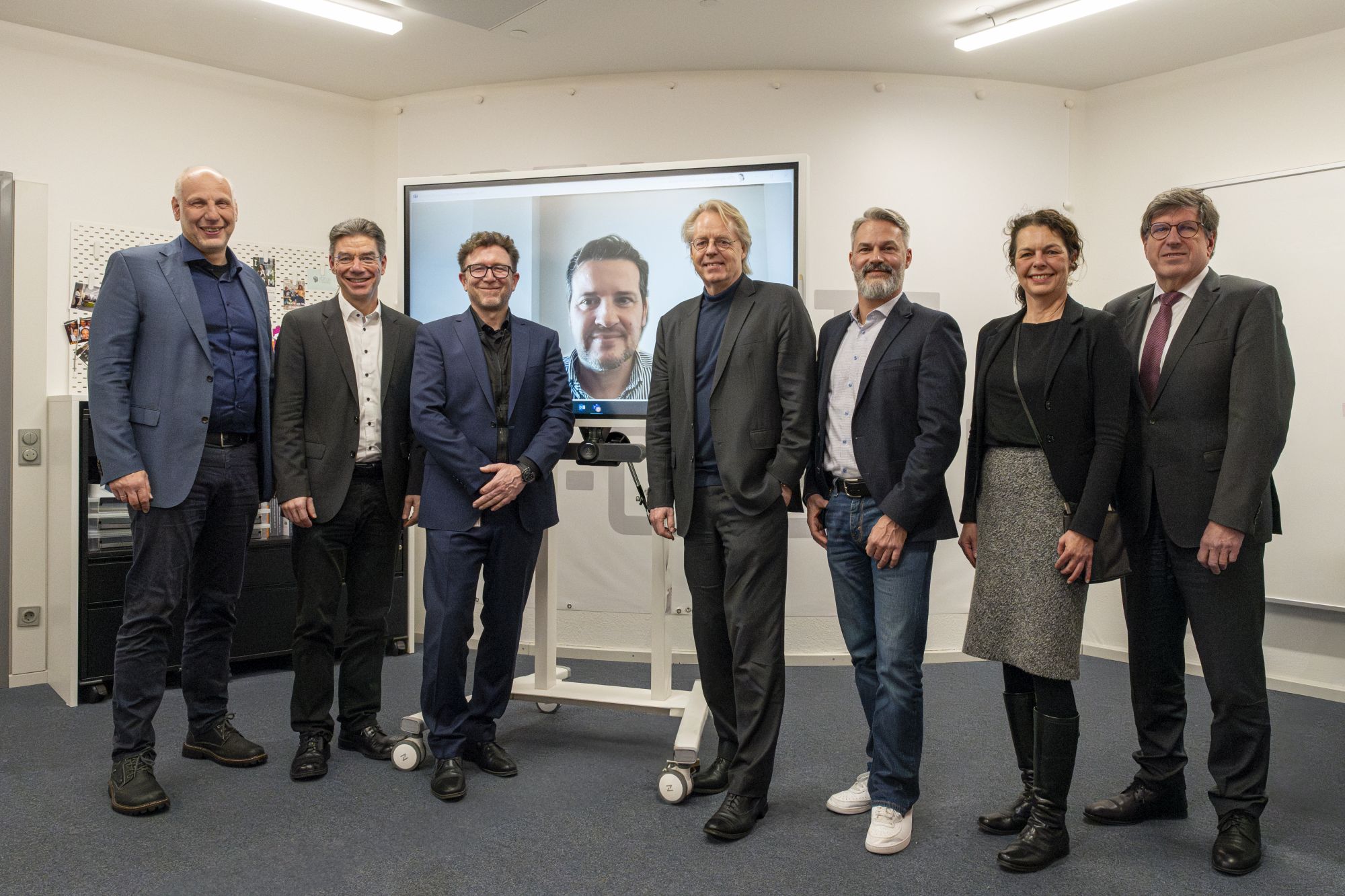In future, intelligent assistants and automated solutions will make everyday work easier, take over routine tasks and create competitive advantages. Artificial intelligence in its various facets is a key enabling technology for this. The Karlsruhe Institute of Technology (KIT) and IBM are expanding their long-standing collaboration in order to jointly develop and strengthen digital innovations and promote young talent for science and industry. The official launch of this now strategic cooperation took place on 9 January 2025.
Karlsruhe/Germany, February 14, 2025 The focus of the organisations is on advancing joint research in areas such as ‘Digital Innovations for Services and Platforms’, ‘Artificial Intelligence’ (AI) and ‘Human-Machine Collaboration’. To this end, a tenure-track professorship supported by IBM will be established at KIT in the newly founded Institute for Information Systems. In this way, KIT and IBM are promoting active dialogue between science, business and society on technological developments and their effects and strengthening close cooperation in the areas of recruiting and university marketing.
‘The strategic cooperation between KIT and IBM enables us to work more intensively on the opportunities and challenges that both digitalisation and artificial intelligence bring with them and to find solutions together,’ says Professor Jan S. Hesthaven, President of KIT. ‘With digital innovations, we not only create an international competitive advantage, but also make an important contribution to social benefits.’ KIT students benefit directly: additional joint teaching formats are planned in degree programmes such as industrial engineering, business informatics and computer science.
‘KIT and its excellence in research, teaching and transfer have been an important pillar of our close, active collaboration for years. We see great potential to significantly expand this internationally, especially with IBM Research and the global development centres,’ David Faller, Vice President IBM Development, and Dr Juan Bernabé-Moreno, Director IBM Research Europe, UK & Ireland, agree.
Expanding long-standing collaboration
With the KSRI – Karlsruhe Digital Service Research & Innovation Hub – KIT and IBM have been offering a platform for collaborative innovations in the field of digitalisation involving researchers, companies, students and industry partners since 2008. ‘With this agreement, we are building on a successful history of cooperation and further advancing the central topics of innovation and transfer to society,’ says Professor Thomas Hirth, Vice President Transfer and International Affairs at KIT. ‘This is great, because it shows how existing relationships can be used to provide new impetus and continuously develop important areas.’„
Collaborative innovations are the order of the day in order to strengthen the location, make concrete local contributions to key technologies such as (generative) AI and thus promote application-oriented research,’ says Dr Carsten Holtmann, Director IBM Customer Success, who is responsible for AI innovations and the relationship with KIT at IBM. ‘In addition, scientific excellence is a decisive anchor point for bringing together students, researchers and experts from industrial companies – KIT and KSRI in particular offer excellent options for this.’
Caption: Expanding their collaboration: Prof. Stefan Nickel (KIT), Prof. Michael Decker (KIT), Dr Carsten Holtmann (IBM), Dr Juan Bernabe Moreno (IBM, virtually on the screen), Prof. Jan S. Hesthaven (KIT), David Faller (IBM), Dr Barbara Schmuker (KIT), Prof. Thomas Hirth (KIT) (from left to right; photo: Markus Breig, KIT)
As ‘The Research University in the Helmholtz Association’, KIT creates and imparts knowledge for society and the environment. The aim is to make significant contributions to global challenges in the fields of energy, mobility and information. To this end, around 10,000 employees work together on a broad disciplinary basis in the natural sciences, engineering, economics, humanities and social sciences. KIT prepares its 22,800 students for responsible tasks in society, business and science through research-orientated university studies. Innovation activities at KIT bridge the gap between knowledge and application for the benefit of society, economic prosperity and the preservation of our natural resources. KIT is one of the German universities of excellence.
Further Information:
(https://www.ksri.kit.edu/)
ImageSource
Markus Breig, KIT, KIT and IBM expand their cooperation (detailed caption at the end of the text)


